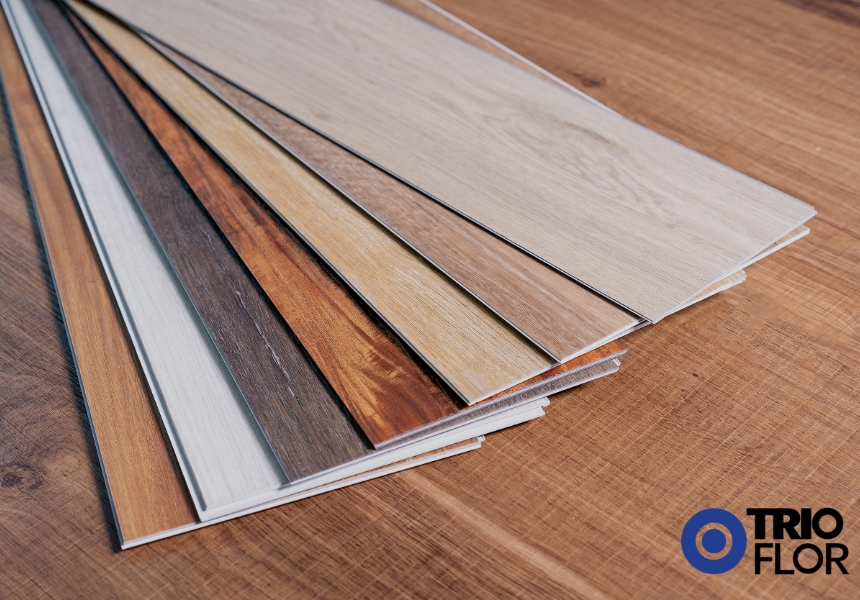
In today’s flooring market, innovation continues to redefine what’s possible in combining beauty, durability, and performance. Among the rising stars in the industry is Hardwood VSPC Flooring, a hybrid flooring solution that merges the natural appeal of real hardwood with the resilience of modern composite technology. For contractors, builders, and property managers looking for waterproof, stylish, and stable flooring options, Hardwood VSPC Flooring offers a compelling alternative to both traditional hardwood and basic SPC vinyl. But is it the right fit for your project? This article explores the key advantages and disadvantages of Waterproof Hardwood VSPC Flooring, helping you make an informed decision.

Hardwood VSPC Flooring—short for Vinyl Surface Polymer Composite—is a multilayer flooring structure typically composed of a real hardwood veneer on top of a rigid SPC core. This construction provides the authentic look and feel of wood, combined with the waterproof, impact-resistant, and dimensionally stable properties of VSPC materials. Unlike traditional hardwood flooring, which can warp or swell when exposed to moisture, Waterproof Hardwood VSPC Flooring is engineered to resist water damage and perform well in challenging environments.
One of the strongest advantages of Hardwood VSPC Flooring is its versatility in both residential and commercial applications. Thanks to its waterproof and wear-resistant properties, it is widely used in:
Hotels & Hospitality Projects: Ideal for high-traffic lobbies, guest rooms, and lounges where aesthetics and performance must coexist.
Retail Spaces: Durable under heavy footfall while providing a premium wood look that enhances brand image.
Apartment Complexes: Preferred by developers for quick installation and long-lasting appearance.
Office Buildings: A perfect choice for stylish yet low-maintenance workspaces.
Luxury Kitchens & Bathrooms: Safe to install in moisture-prone areas without worrying about warping.
Basement Renovations: With its waterproof core, Hardwood VSPC Flooring is a great solution where traditional wood fails.
Whether you're planning a new construction project or retrofitting an existing space, VSPC wood flooring gives you the flexibility to meet design goals while satisfying technical performance standards.
Unlike natural wood, Waterproof Hardwood VSPC Flooring does not swell or warp when exposed to moisture. This makes it suitable for spaces like bathrooms, kitchens, and basements where spills and humidity are common. The SPC core ensures dimensional stability over time, even in high-moisture environments.
Thanks to its real hardwood veneer layer, Hardwood VSPC Flooring delivers the warmth, grain, and character of natural wood. It outshines pure vinyl or laminate in terms of appearance and texture, making it ideal for premium commercial or residential interiors.
The rigid SPC core gives VSPC hardwood flooring superior resistance to dents and scratches. It holds up well under furniture, foot traffic, and heavy equipment—qualities that commercial property owners and developers highly value.
With click-lock systems and floating installation methods, Hardwood VSPC Flooring saves time and labor. It requires no nails or glue, making it a popular choice for fast-track projects. This feature also simplifies repairs and future renovations.
Daily maintenance is minimal—just vacuuming or mopping with a damp cloth. Unlike solid hardwood, VSPC wood flooring does not need refinishing, waxing, or special care, reducing long-term maintenance costs.
While the upfront cost of Hardwood VSPC Flooring may be slightly higher than vinyl or laminate, its long-lasting performance and low maintenance needs make it a more cost-effective choice over time—especially in commercial installations.
Because the top layer is a thin real wood veneer, Hardwood VSPC Flooring cannot be sanded or refinished like solid hardwood. Once the surface wears out or is damaged, the plank typically needs to be replaced.
The rigid core, while great for durability, results in a harder feel compared to cork or cushioned underlays. In some residential settings, this may require added rugs or underpadding to improve comfort.
Not all VSPC wood flooring is created equal. The thickness and species of the hardwood veneer greatly influence the product's lifespan and resistance to wear. Low-quality veneers may fade or scratch more easily, especially in high-traffic areas.
If you're seeking a waterproof, stylish, and low-maintenance flooring solution that mimics the look of real wood, Hardwood VSPC Flooring may be exactly what your project needs. From luxury hotels to modern kitchens, this flooring type is redefining what’s possible in both design and performance. While it may not be suitable for those who value deep refinishing or softer footfeel, its practical advantages far outweigh its limitations for most commercial and residential uses.
For contractors and designers working on projects that demand performance without sacrificing aesthetics, Waterproof Hardwood VSPC Flooring is a smart investment.
Previous: None